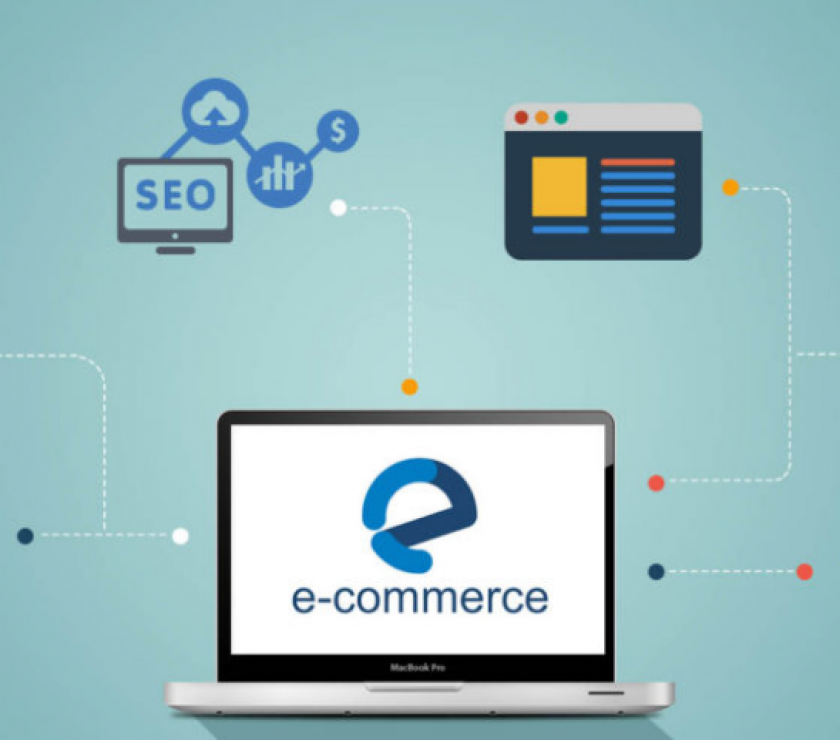In the fast-paced world we live in today, technology has changed the way we do almost everything. Small businesses are no exception. One of the most critical transformations for small businesses has been the rise of e-commerce websites. In this blog, we will explore why having an e-commerce website is so important for small businesses, using simple and easy-to-understand language.
What is an E-commerce Website?
First things first, let’s break down what an e-commerce website is. An e-commerce website is like a virtual shop on the internet where businesses can sell their products or services. It’s like having a store that’s always open online. Customers can visit this website, look at the products, buy them, and even pay for them online.
Why E-commerce Websites Matter for Small Businesses?
- Reach a Wider Audience: With an e-commerce website, a small business can reach customers far beyond its physical location. Anyone with an internet connection can visit your online store, which means your potential customer base becomes global.
- Convenience for Customers: Many people prefer shopping online because it’s convenient. They can browse and buy products from the comfort of their homes, 24/7. This convenience can attract more customers to your business.
- Lower Operating Costs: Running a physical store comes with expenses like rent, utilities, and maintenance. E-commerce websites can reduce these costs, making it more affordable for small businesses to start and maintain their businesses.
- Easy to Showcase Products: E-commerce websites allow you to display your products with pictures, descriptions, and prices. This makes it easy for customers to see what you offer and make informed decisions.
- Payment Options: E-commerce websites offer various payment methods, such as credit cards, digital wallets, and even cash on delivery. This flexibility can attract different types of customers.
- Track Customer Behavior: With e-commerce, you can track what products are popular, how long customers stay on your website, and what they add to their carts. This data can help you make better business decisions.
- Compete with Big Brands: Having an online store lets small businesses compete with big companies. Your products can appear in search engines alongside products from larger competitors.
- Build Trust: A well-designed e-commerce website can build trust with your customers. Providing contact information, clear product descriptions, and secure payment options can make customers feel safe buying from you.
- Adaptability: E-commerce websites can adapt to changes in the market quickly. You can update product information, prices, and promotions with just a few clicks.
The Top 7 E-commerce Platforms for Small Businesses
We’ll walk you through the seven best e-commerce platforms, explained in simple terms.
1. Shopify
What it is: Shopify is like a helpful friend that makes it easy for you to sell stuff online.
2. WooCommerce
What it is: WooCommerce is like a magic tool that turns your regular website into an online store.
Why it’s great: It’s free (yay!), but you need a WordPress website. It’s customizable and can sell all kinds of stuff, like digital things and subscriptions.
3. BigCommerce
What it is: BigCommerce is like a big toolbox with all the tools you need for your online store.
Why it’s great: It’s super powerful, with features like selling on different platforms and managing your stock. Plus, there are no extra fees.
4. Wix
What it is: Wix is like a creative playground where you can build your online store.
Why it’s great: It’s easy to use and has beautiful designs. You can also find SEO tools to help people find your store on the internet.
5. Squarespace
What it is: Squarespace is like an art studio where you can create a beautiful online store.
Why it’s great: It’s perfect if you care a lot about how your store looks. It also has tools for blogging and sending emails to customers.
6. Magento
What it is: Magento is like a super-customizable robot for your online store.
Why it’s great: It’s free (if you’re tech-savvy) and can handle lots of products. But it’s a bit tricky to set up, so you might need help.
7. Weebly
What it is: Weebly is like a simple builder for your online store.
Why it’s great: It’s easy to use, even if you’re not techy. You can also market your store with email and social media.
Conclusion
In a nutshell, an e-commerce website is like a powerful tool that can help small businesses grow and thrive in the digital age. It provides a way to reach more customers, reduce costs, and offer convenient shopping experiences. If you have a small business or are thinking of starting one, consider the importance of having an e-commerce website—it might just be the key to your success.




